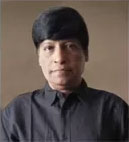
As parties declare their candidate lists, Maharashtra’s major political players grapple with rebellion, defections, and internal divisions. As candidates denied tickets and ambitious defectors stir dissent, parties struggle to hold alliances together and prevent vote erosion that could derail their electoral plans.
As Maharashtra gears up for the 2024 elections, defection, dissent, and party switching are rife across its political spectrum, highlighting a trend where alliances are severely tested by internal rebellions. These situations stem from discontent, often caused when a candidate is denied a ticket, a party favours defectors over loyalists, or factions clash within alliances, creating new headaches for party leaders and complicating election strategies.
In the ruling Mahayuti alliance of the Bharatiya Janata Party (BJP), Shiv Sena (Shinde faction), and Ajit Pawar-led Nationalist Congress Party (NCP), cracks are emerging as candidate lists roll out. Following the release of their first lists, the discord reached a point where Union Home Minister Amit Shah called for an urgent meeting to manage tensions and curb rebellion. Despite intervention, rebellion persists in pockets of this alliance, with BJP’s candidate decisions sparking significant discontent. In Pune’s Kothrud, BJP leader Amol Balwadkar even filed his nomination against his party’s senior leader, Chandrakant Patil, underscoring the intensity of intra-party rivalry. Similar protests have erupted in Solapur, Sangli, and Nashik, where disenfranchised party members and aspirants have either defected or declared independent candidacies, effectively threatening the cohesion of the ruling alliance.
Sidelined candidates
Notably, BJP’s grassroots-level leaders seem to be deeply frustrated, especially as candidates from alliance partners have often been favoured over them. The defection of Rajendra Mhaske from Beed to the Sharad Pawar-led NCP and Balwadkar’s decision to oppose Patil illustrate how sidelined candidates are unwilling to adhere strictly to party diktats, thereby fragmenting the BJP’s vote bank.
The Shinde faction of the Shiv Sena faces its own share of challenges, primarily over candidate swapping. Shinde Sena’s Dhanraj Mahale defied his leadership by filing as an independent from Dindori, resisting the decision to allocate the seat to an NCP nominee. Meanwhile, in Jalna, the local candidate Arjun Khotkar is being challenged by BJP’s Bhaskar Danve, complicating internal coordination within the alliance and testing the mutual loyalty of partners. Party spokesperson Krishna Hegde has acknowledged the extent of rebellion, emphasizing the ongoing efforts to quell dissent but without guaranteeing comprehensive success.
These fractures in the alliance, notably where loyalists feel sidelined, jeopardize the stability of the Mahayuti as it attempts to present a united front. With more than 40 of the 182 seats in the alliance facing rebellion, the situation exposes the challenges inherent in maintaining such a broad coalition. Every defection or independent candidacy not only risks diluting the alliance’s vote but could also erode its credibility among loyal supporters who may feel alienated by the party’s preference for defectors over long-standing members.
The situation is equally volatile within the Uddhav Thackeray-led Shiv Sena (UBT) camp. With internal divisions over candidate selection and a series of high-profile denials, UBT is struggling to maintain unity. An illustrative example of the rift was in Shivadi, where loyalist Sudhir Salvi organized a public protest when the party favoured incumbent Ajay Choudhuri. Thackeray had to intervene personally, eventually pacifying Salvi, who withdrew his candidacy but not without causing a stir. Salvi’s eventual stand underlined the loyalty-versus-ambition dilemma that haunts many loyalists within Maharashtra’s party ranks.
Fragmenting vote base
These rebellions not only undermine the authority of party leaders but also signal a potential shift in voter sentiment. Leaders are concerned that disgruntled members might sway traditional party voters, further complicating election math. Analysts agree that a cohesive image is critical in voter perception; hence, these conflicts could make voters question the unity and stability of parties, which in turn might influence undecided voters or those disillusioned by defections.
In response, party leaders like Maharashtra BJP chief Chandrashekhar Bawankule and Sena’s Krishna Hegde have reaffirmed their commitment to stem rebellion, yet the pervasive unrest suggests that managing this will be a daunting task. As parties finalize their candidate lists, the simmering dissent is likely to continue, hinting at a precarious run-up to the 2024 elections. If these rebellious currents persist, they could set a new precedent, altering the traditionally rigid loyalty structures within Maharashtra’s politics and leaving party leaders grappling with unexpected obstacles on the campaign trail.
The impact of widespread rebellion and defections within Maharashtra’s major parties could significantly influence the 2024 election outcome, potentially weakening the unity and vote share of even the most formidable alliances. Disenfranchised loyalists and independent candidacies not only risk splitting votes but may also disillusion traditional party supporters who could view these internal rifts as a sign of instability. Such turbulence undermines the core campaign messages of unity and governance credibility, leaving parties vulnerable to voter swings and making it challenging to maintain a decisive edge. For smaller or opposition parties, these divides may open opportunities to capture disaffected voters, reshaping electoral dynamics across the state.

A Column By
Raju Korti – Editor
The Resource 24X7
A Journalist With 4 Decades of Experience With Leading Media Houses.
